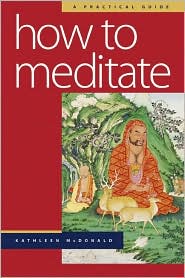 It took a bit of time to read through Dante's Inferno, but mainly because I was keeping busy at other things. This is a translation by John Ciardi, not the more famous one by Longfellow, but neither makes pretense of following Dante's rhyme scheme (which I've been told ruins any translation by requiring a fight for the rhyme). I found the translation very readable and enjoyable.
It took a bit of time to read through Dante's Inferno, but mainly because I was keeping busy at other things. This is a translation by John Ciardi, not the more famous one by Longfellow, but neither makes pretense of following Dante's rhyme scheme (which I've been told ruins any translation by requiring a fight for the rhyme). I found the translation very readable and enjoyable.This book is only the Inferno, not the other two parts of the Divine Comedy. It was 99 cents at a thrift store if you're wondering why I didn't try to get all three in one volume.
I do not believe in hell. (I do believe in giving hell to people, such as in "Give 'Em Hell, Harry," but not in a specific place or even non-place to which the souls of the condemned are, well, condemned.) I found this poem fascinating for quite other reasons. I don't know anyone, even the Catholic Church, who abides by Dante's description of hell; that wasn't Dante's point, either. He writes as though he took a literal trip through the three layers of the afterlife, but certainly he didn't claim the trip literally took place or that his descriptions were literal and real. Dante was a papist and a good Catholic, and certainly he wanted to evoke the perfect justice of the afterlife; but to a large degree the Comedy was a forum for Dante to condemn (or praise) people he knew--some of whom weren't even dead yet when he was writing--for their actions. Dante found a way to use Christian allegory to write large the political and ecumenical debates that had riven Florence during his lifetime and were not yet settled at the writing (Dante died in exile from Florence). It is in that sense a very personal work, and a rather scathing political commentary.
That is not to take anything away from the work as a piece of literature; there hasn't been political (or religious) commentary like this since. As creative allegory the Inferno is a masterpiece; the way Dante punishes the damned in hell, each sin begetting its own perfect and perfectly just eternal punishment, is a feat few writers since have managed as convincingly and as beautifully.
I can't compare Ciardi's translation with others, since I haven't read any others (though at least Longfellow's is available on the web). I've been told that any translator who attempts to keep Dante's rhyme scheme and meter intact in the English is doing a massive disservice to the work, and that's probably true; Ciardi manages to keep an aba cdc fgf hih type of rhyme scheme throughout, which no doubt affected his word choice a great deal but the translation was still very readable (Longfellow's translation abandons rhyme for meter; I'd like to see a side-by-side comparison of the two, just for curiosity's sake).
What sets Ciardi apart is his voluminous notes at the end of every canto. You could read through the whole thing in an afternoon if you didn't bother to look at the notes, but the notes illuminate much of the allegory and much of the historical setting of the work to which any typical modern reader would be ignorant (this reviewer included). Setting the work in the Florence of c. 1310 helps understand much of what Dante is doing, who the wraiths are that he speaks to, and what their relationship to Dante was in life. I found it fun to read through all the notes, and I certainly discovered elements of Dante's genius I never would have seen without them. His assembly of this poem was as much a triumph of mechanics as of literature; he put the thing together almost as a watchmaker assembles a watch, and while a simple reading of the thing would be enjoyable, getting the nitty gritty of the notes really leaves the reader impressed at Dante's skill.
I am no Dante Alighieri. Neither, sadly, is anyone else I've read.
